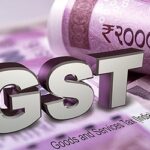A filed appeal challenges the order passed by the Income Tax Appellate Tribunal on November 29, 2019, for the Assessment Year 2012-13. The appellant’s counsel argues that the ITAT made an error by allowing the capitalisation of interest on fixed deposit receipts (FDRs) earned during the construction period without appreciating that the assessee did not follow RBI guidelines while utilizing the ECB funds. The counsel also contends that the ITAT failed to consider the various decisions of the Apex Court, including Tuticorin Alkali Chemicals and Fertilizers Limited vs CIT, (1997) 227 ITR 172 (Supreme Court).
The admitted facts of the case are that the assessee acquired a capital asset, i.e. renovation and refurbishment of a hotel under SARFEASI Act, for which they took a Foreign ECB loan of Rs.82.37 crores. The entire loan was disbursed in a single trench in the year under consideration, and during that year, the assessee could utilize only Rs.33.70 crores. Therefore, the assessee temporarily parked the ECB loan in FDRs until utilization for fixed asset/capital expenditure, strictly in compliance with RBI instructions. The assessee paid interest of Rs.13.38 crores and earned interest on FDRs of Rs.4.03 crores. The net amount of interest of Rs.9.35 crores has been added to the preoperative expenditure pending capitalization.
The appellant’s counsel has referred to and relied upon the judgment passed in Tuticorin Alkali Chemicals (supra). However, the Apex Court subsequently considered and explained the same in Commissioner of Income Tax, Bihar II, Patna vs. Bokaro Steel Ltd., Bokaro, (1999) 1 SCC 645, stating that if the assessee receives any amounts inextricably linked with the process of setting up its plant and machinery, such receipts will go to reduce the cost of its assets. These are receipts of a capital nature and cannot be taxed as income.
In Indian Oil Panipat Power Consortium Limited, New Delhi vs. Income Tax Officer, (2009) 315 ITR 255 (Delhi), a Division Bench of the Court held that the interest earned by the assessee could not be treated as income from other sources because the funds infused in the assessee by the joint venture partner were inextricably linked with the setting up of the plant. The court opined that the Tribunal misdirected itself in applying the decision of the Supreme Court in Tuticorin Alkali Chemicals (supra) in the facts of the present case.
The same principle was reiterated by this Court in Principal Commissioner of Income Tax vs. Facor Power Ltd., (2016) 380 ITR 474 (Delhi).
Considering the above, this Court opines that no substantial question of law arises for consideration as the questions sought to be raised in the present appeal are squarely covered by the decisions of the Apex Court as well as this Court. Accordingly, the present appeal is dismissed.
In conclusion, the present appeal challenges the order passed by the ITAT regarding the capitalization of interest on FDRs earned during the construction period. The appellant argues that the ITAT erred in allowing the capitalization of interest without considering RBI guidelines and various decisions of the Apex Court. However, the admitted facts of the case show that the ECB loan was temporarily parked in FDRs in compliance with RBI instructions. The net amount of interest has been added to the preoperative expenditure pending capitalization.
Based on the principles established in the Tuticorin Alkali Chemicals case and subsequent decisions by the Apex Court and this Court, it can be concluded that the interest earned by the assessee could not be treated as income from other sources and should be reduced from the cost of its assets. Therefore, no substantial question of law arises for consideration, and the present appeal is dismissed.
It is advisable for taxpayers to comply with RBI guidelines while utilizing ECB funds and keep a record of all financial transactions to avoid any potential tax disputes. Furthermore, seeking professional advice and staying updated with relevant legal developments can help taxpayers make informed decisions and avoid unnecessary litigation.







